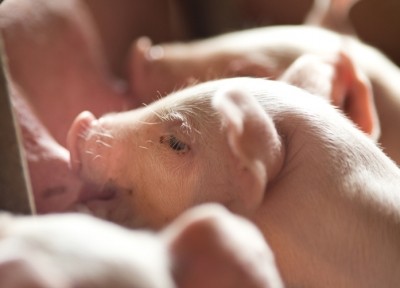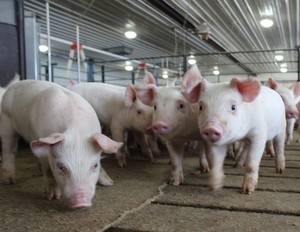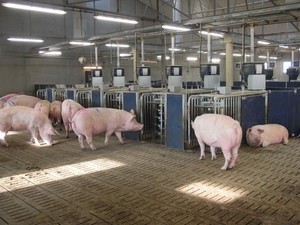EFSA unable to conclude efficacy of a gut flora stabilizer in pigs: Norel looks to complete dossier

The Spanish animal nutrition group is seeking re-authorization of its product, Fecinor, as a gut flora stabilizer in feeds for weaned piglets at an inclusion level of 1×109CFU per kg of feed.
Juan José Mallo, technical and commercial director at Norel, told FeedNavigator.com that the company is working to plug the gaps found in the dossier, and is “positive” about being able to comply with EFSA guidelines in this regard “soon”.
Fecinor is a feed additive based on lyophilized cells of a single strain of Enterococcus faecium.
The product is currently approved for use in the EU for weaned piglets and chickens for fattening.
Last week, the European Food Safety Agency (EFSA) said while the developer provided it with nine efficacy studies performed in two member states and different locations, the agency disregarded five of the trials “because they were of insufficient duration.”
Thus, the Parma-based agency’s Panel on Additives and Products or Substances used in Animal Feed (FEEDAP) said it was unable to reach conclusions on the efficacy of the additive.
But the EFSA experts said, on the basis of the known characteristics of the organism and formulation of the product, Fecinor is considered safe for weaned piglets at the recommended dose.
Submitted studies
FEEDAP said the first trial it looked at, as part of its re-evaluation of the additive, involved 300 weaned piglets randomly distributed in three treatment groups.
Each group was composed of 10 replicates of 10 animals per pen. The animals were successively fed a pre-starter diet based on barley and maize and a starter diet based on wheat, maize and barley, and either supplemented or not with the additive.
The duration of the study was 53 days. Parameters such as weight and feed intake at the pen level were controlled.
The Panel found zootechnical performances of Fecinor-treated animals were not significantly different from control animals.
The second and third studies shared a similar experimental design. The second trial was carried out with 96 weaned piglets and the third involved 48 weaned piglets.
Piglets were kept in pens and fed mash maize/barley/wheat based pre-starter and starter diets ad libitum. There were 12 replicates (four animals per pen) in the second trial and six replicates (four animals per pen) in the third study.
Individual body weight was measured at the beginning and end of the experiment, and at an intermediate time point. Feed intake per pen was measured at days 14 and 42.
In both studies, supplementation of Fecinor improved the feed to gain ratio of piglets, said EFSA.
The fourth trial involved 288 weaned piglets, which were equally distributed into four treatments: control, Fecinor and two groups receiving another microbial product.
All animals were treated with colistine and neomycin once at weaning and later when feed was changed due to the incidence of diarrhea.
However, due to the extensive use of therapeutic antimicrobials and the apparent poor health status of the animals in the trial, the FEEDAP Panel said it was unable to draw any conclusions about this study.
The FEEDAP opinion can be read here.








